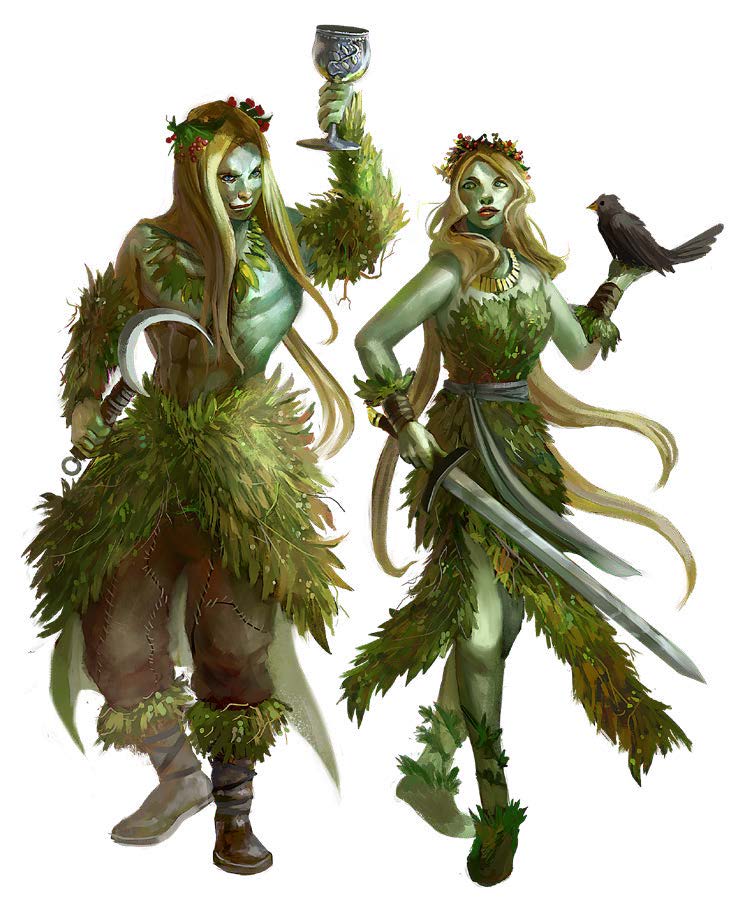 Dearest Mother and Father,
Dearest Mother and Father,
It feels as though it has been far too long since sending my last notes to you. The last weeks have been spent in Gastropnir, a city of giants!
The Town of Gastropnir
Gastropnir is unlike any place I have been before. I have never had to pay so much attention and step so carefully lest I end up enslaved or worse!
The town of Gastropnir has expanded substantially in the last decade. In the past, this area was a few giant huts, surrounding the trap-filled hollow-mountain home of the giantess witch Mengloth. Now, it is a small town of wood-and-stone buildings built to accommodate both giants and the smaller folk. The surrounding lands are dotted with giant farmsteads, many of which tend to substantial herds of cattle and sheep. Relatively large numbers of adventurers make their way to Gastropnir to petition its most famous resident for healing or other boons. Unwary visitors or those who drink too greedily of the local mead can easily wake from their evening’s rest to find themselves in chains and bound for the slaver’s pens or in a giant’s larder awaiting the cookpot.
Mengloth
The name Mengloth is uttered often here, though almost everyone I speak to claims never to have seen her. She is said to be an ancient giantess who can twist the fates themselves.
Mengloth still resides in her hollow mountain, her reputation no less fearsome than it has ever been. She is even more reluctant to deal with petitioners and has her spies and minions spread rumors throughout Gastropnir that even those brave souls who have bested the gauntlet set for them are afflicted with a wasting illness for disturbing her. Whether this is true or not isn’t commonly known since the Guest Crusher, as her home is known, does its job exceedingly well.
Mengloth’s talents as a seer and mystic are undimmed by the years. She can see a person’s fate as woven by the Norns and is a skilled healer with traditional as well as magical healing methods. In the past, many of her petitioners requested the resurrection of a loved one, which she can effect but requires exceptionally valuable magical jewellery to do so.
The Holmganga
Two warriors are in a dispute about which of them slew the wolves preying on the nearby herds. They cannot come to an agreement, so a duel has been called to resolve their differences. Duels in the north are very formal and viewed as great entertainment by the commonfolk.
When a person’s honor is called into question, the offender has three days to issue a formal apology before the offended can call a holmganga. The first holmganga were performed on small islands, though they are most often now held on ox skins staked to the ground with a three-section perimeter marked with wood staves, indicating the full size of the battlefield. If a duelist steps outside the perimeter completely, they forfeit their claim. A warrior who flees the holmganga is labeled a coward and an outlaw. A person challenged to holmganga can have a champion fight in their stead if they are obviously no match for their challenger.
The parties involved in the holmganga agree to the rules of the duel, which include the weapons allowed, which party may strike the first blow, the terms of defeat or forfeiture, and the prize awarded to the winner. Most often, the duel lasts until one party flees or can no longer continue the fight. The killing of your opponent while defending your claim in a holmganga is not considered murder and does not lead to outlawry. Canny warriors can make a good living traveling from town to town, challenging weaker fighters to duels for petty slights, and collecting the prizes agreed upon.
Outlawry in the North
The warrior who was challenged to the holmganga fled the battle, much to the amusement of the assembled crowd who roared with laughter and hurled colorful insults at his back.
To be declared outlaw in the Northlands is to be completely without honor. Outlaws can be slain with no penalty to their killer, and the north is rife with bounty hunters who collect rewards for hunting and killing them. An outlaw’s family refers to them in the past tense as though they have already met the Norns’ judgement.
While being declared an outlaw can have a grave impact on the life of a farmer or artisan, it is often mitigated by the declared simply moving to a different kingdom where the status is usually ignored by the populace. In the case of northern adventurers, outlawry is just a common hazard of their trade, and given their itinerant nature, one that doesn’t necessarily affect them much.
Watching the holmganga and the fleeing duelist reminded me of my former companion, Aksel. Despite his status as an outlaw, I quite liked him. It feels as though so much time has passed since we parted ways. I wonder what fate the Norns have woven for him and hope that they allow him to return to his family someday.
I will leave Gastropnir soon and will write again when I can.
Until then I am ever your daughter,
Inbar

Very cool- I cant wait to pick up the Midgard sourcebook soon!!! I’m hoping to move my gaming group into a Viking/Germanic themed campaign and Midgard is a one stop shop!!